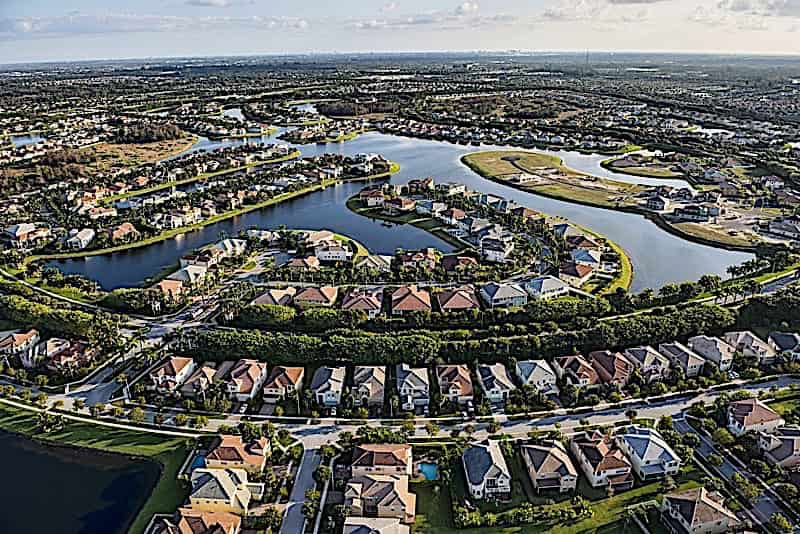How To Determine Land Value
By Than Merrill
Estimating land value is a skill that the best investors have mastered. Whereas most real estate entrepreneurs understand the art of valuing physical property, few have applied their knowledge to raw land. But in reality, the ability to estimate land value comes in handy on just about every deal, regardless if it’s developed or not.
Why?
Keep reading to understand the benefits of being able to accurately estimate land value as well as the three steps it takes to effectively do so.
-
Get an appraisal
-
Use comparable land to come up with an estimate
-
Work out the details with a qualified real estate agent
Get An Appraisal
Not unlike traditional real estate valuations, appraisals may be used to determine the approximate valuation of raw land. Consequently, estimating land value isn’t all that dissimilar to estimating the value of physical property. As it turns out, professional appraisers may be used for each specific process. It is worth noting, however, that while the two valuation strategies share several inherent similarities, there are many important differences to take into consideration. Namely, the asset in question will need to be judged on its own merits. If for nothing else, appraising raw land will need to look at several variables that share no association with physical real estate.
Appraising land is different from appraising a home, which means it is important to find a qualified appraiser; one that has been recognized by professional societies and carries the appropriate credentials. Finding an appraiser is as simple as looking online, but for those of you with stricter criteria may want to get a referral from a bank or real estate agent. That way you can be sure you are working with an appraiser that has experience in raw land deals.
Prior to enlisting the services of just anyone, however, it’s important to vet your options. First, check the appraiser’s license—a quick confirmation of their license number should tell you if they are legally allowed to appraise in your respective area. Once you are confident in their status as a licensed appraiser, proceed to get a quote for their services in writing. In the event the price sounds fair, you may move forward with the appraisal process. If, however, you aren’t comfortable with the asking price, feel free to shop around for competitive prices.
With a qualified appraiser lined up, schedule the appraiser for a time when you are available. That way you will be present and be able to answer any questions they may have. Perhaps even more importantly, you’ll want to gather all the appropriate documents to ensure the most accurate appraisal. Some of the documents you will want to have nearby may include, but are not limited to:
-
The title report
-
The legal description
-
The most up-to-date tax bill
-
The most recent listing agreement
-
The plot plan or survey
Providing the appraiser with these documents, and more just like them, will ensure the most accurate valuation of the plot.
[ Learn how to analyze deals like a pro! Attend a FREE real estate class in your area to learn how to identify the most rewarding investment deals. ]

Use Comps To Determine Land Value
Hiring an appraiser is one of the best and easiest ways to estimate land value. That said, the value of most assets—including physical real estate and raw land— is entirely dependent on the broader market. In other words, calculating land value starts and ends with comparable plots. Not unlike comparable properties, or “comps” as they are often referred to as, raw land gains its value when it’s compared to similar, nearby plots. The value of a plot of land is relative to similar plots of land within a close proximity. Therefore, one of the best ways to estimate the value of land is to use nearby “comparables.”
The first thing you’ll want to do is look for other lots for sale. Search nationally recognized websites like Zillow or Redfin for an idea of what similar pieces of land are going for. That’s not to say you can simply look at any piece of land, but rather that popular sites will be more likely to host similar plots to your own subject plot. When browsing websites, you’ll want to check for lots that are either currently for sale, or that have sold within the last six months or so. Not only that, but you’ll want to make sure the comps are located within a close proximity to the land in question. Suburban comps may extend as far as a mile away, where rural comps may need to be increased to about five miles. Either way, the closer the land is, the better.
In addition to having been sold recently and nearby, comparable land also needs to be similar to the subject land. When assessing the similarities between to pieces of land, be sure to account for the following:
-
Accessibility
-
Size and shape
-
Topography
-
Location
-
Resource availability
There are a number of characteristics that will differentiate plots of land from one another, but some are more common than others. Therefore, pay special considerations to those listed above, and make sure they are comparable to your own plot of land.
The idea is to find a plot of land that mimics your own. That way, you’ll be able to—at the very least—build off of a foundation for estimating land value. In a perfect world, the value of the comparable will help you determine the value of your own land.
Ask A Real Estate Agent
Most real estate agents are more comfortable dealing in physical homes other than raw land. However, their knowledge of particular neighborhoods should—at the very least—add some weight to their opinions on raw land. Due, in large part, to their unparalleled expertise on a respective area, real estate agents may serve as some of the best resources for estimating land value. At the very least, they’ll be able to evaluate a specific plot of land based on the surrounding area. While they may not have a lot of experience valuing the land themselves, they will certainly know local factors that must be taken into consideration. The land’s proximity to subsequent amenities, for example, will greatly impact its value. That said, not every real estate agent will be of assistance; you need to inquire with the right agents for the job. Instead of working with the first agent you find, try asking around for referrals and vetting those you come into contact with. Just as you would with a mortgage provider, don’t be afraid to “shop around” for a qualified agent. Find, at the very least, two or three agents to consult with, and make sure they are qualified to deal in raw land valuations.
Summary
Estimating land value utilizes many of the same concepts as physical real estate valuations, but there are plenty of differences that need to be considered. Those who are not only able to discern the difference between the two strategies, but also know how to determine land value quickly and accurately are inherently better equipped to execute more real estate deals than their competition. At the very least, calculating land value awards savvy investors with one more opportunity to close a deal. Therefore, everyone should at least know how to value land, as it may be the foundation of the next deal that comes across their table.
Key Takeaways
- Estimating land value may be the most underrated skill today’s investors can familiarize themselves with.
- Learning how to determine land value isn’t all that different from a physical real estate appraisal, but the devil is in the details
- There is no such thing as a land value calculator, but there are several techniques that may be used to make your job easier.